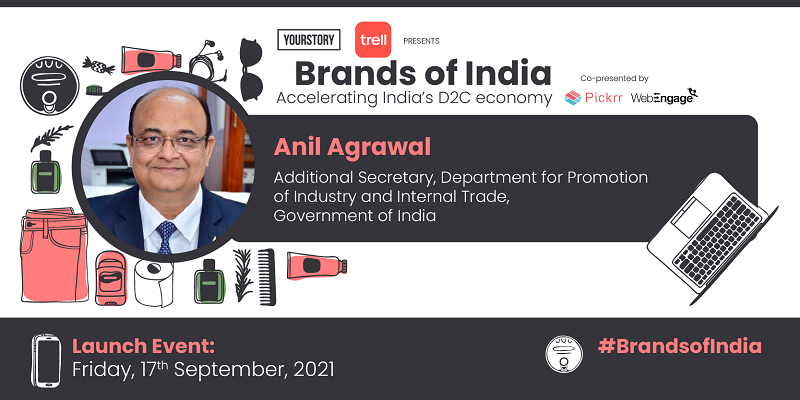[Startup Bharat] This Indore-based startup is swatting away the mosquito problem with insect-repellent clothes for newborns
Formed from a personal pain point, bootstrapped Clothing Innovation aims to reduce the spread of vector-borne diseases in India with a patent-pending formula that helps it make mosquito-repellent clothes.
1552542017935.jpg?fm=png&auto=format)
Indore-based Shreshtha and Mayur Malpani founded Clothing Innovation in 2017.
The thought of using mosquito-repellent creams, lotions, and patches on newborns and babies repels every parent. A couple facing the same problem wondered if there was a way out, and came up with a proprietary process that binds a 100 percent active insect-repellent ingredient into the fibre of the fabric.
Indore-based Shreshtha and Mayur Malpani founded Clothing Innovation in 2017, and now offer Armour technology, a patent-pending formula that “factory treats” fabric to “ensure it repels insects like mosquitoes, flies, ticks, chiggers, ants and no-see-ums”.
The treatment lasts for up to 50 washes, according to founding duo, who hope that this innovation will do away with the need to use traditional repellents or modern roll-ons.
The bootstrapped startup provides treatment on all kinds of fabrics (except silk and velvet) and also sells its own range of insect-repellent, anti-microbial, and anti-bacterial fabrics and apparel for children and adults.
Mayur and Shreshtha seem to have the right background for a textile-based startup. Mayur, who has a degree in textile engineering from Sri Vaishnav Institute of Engineering, Indore, and a master’s degree in product designing and global marketing from Virginia Commonwealth University, began working with a market research firm in Bengaluru.
He eventually moved to a manufacturing firm in Indore before launching Clothing Innovation. Shreshtha has an MBA degree from SCMLD, Pune, along with experience of working in the banking sector and the apparel manufacturing sector. Both of them invested Rs 25 lakh each to set up their manufacturing and production unit in Indore.
What is Armour technology?
Clothing Innovation was incubated at NSRCEL, IIM-Bangalore, where the co-founders received year-long (2018-19) mentorship and guidance. The founders put in research of almost a year and half to develop a lasting formulation, which they now call Armour Insect Repellent Technology.
Co-founder Mayur Malpani says, “The active ingredient we use is a synthetic form of insect repellent found in certain natural flowers. We came up with a nanotechnology-based encapsulating process to treat regular fabric and convert it into an insect-repellent variant. Our process follows the standards of safety and protection as laid down in the World Health Organisation parameters.”
He adds that their technology can treat curtains, bed linen, and upholstery material used in homes and commercial spaces.
Mayur adds,
“Our B2C model includes our own range of products such as baby sleeping bags, shrugs, shirts, hoodies etc. for infants and babies. We design fabric with trending prints, treat it with Armour technology, stitch it into garments, and sell under our own brand name Armour."
Shreshtha, Co-founder, says their line of products puts expectant and nursing mothers at peace. “They can rest assured that their babies are safe from insects and don’t come in contact with any chemical in those crucial early months.”
As of now, Clothing Innovation is selling its range directly to customers through social media marketing and word of mouth.
For the B2B model, the startup mainly works with 170+ retail counters, contacting them personally and partnering with them for the treatment of shirts, jackets, and bedlinen under their brand label. Some of these retail counters include Chennai Silks in Chennai, Raghav Mart in Lucknow, and Ram Silks in Pondicherry.
Clothing innovation has a 70-member team, including marketing, admin staff, and labour who work at the production unit. The startup claims to have reached a sales figure of Rs 1 crore in the current financial year. It has sold 50,000 shirts and baby apparel along with 6,800 bed linen products so far. They claim a growth of 15 percent year on year.
At present, Clothing Innovation has a capacity to manufacture 50,000 units of children’s apparel per month, and can treat 100,000 metres of fabric per month.
Also read: Agritech startup offers bio-based alternatives to better yield and improve crop quality
Operating from a smaller city
Why did the co-founders not move to a bigger city? Since they agree that Tier I cities have advantages, especially when it comes to market and pricing. “I think more people in Tier I cities would be willing to pay. For instance, the price difference between regular baby clothing and Armour-protected clothing is approximately Rs 100-150. Yet, we found it tough to sell directly to consumers due to lack of awareness,” Shreshtha says.
Agreeing that insect-repellent fabric is still a new concept in India, she adds that they felt they were better placed in Indore, a city of businessman and merchants. “The biggest advantage was the lower cost of setting up a research and production unit. Or else, our production price would have gone up manifold.”
The challenge for Mayur and Shreshtha was not being in a Tier II city; it was getting the essential tests and certifications. “Our startup does not fall in any category as per either ISO or any other important certification as there are no guidelines or product category that match ours,” they say.
So how do they get their products tested? “Our formulation fulfils the standards of the Centers for Disease Control and Prevention (CDC), US. For efficiency and effectiveness, our products go through laboratory tests on a regular basis at international labs like US-based laboratory Intertech and government labs like the Bombay Textile Research Association (BTRA),” he says.
The tests include knockdown testing, a widely accepted scientific laboratory methodology for determining the efficiency of insect-repellent treated textile. Agencies such as WHO, CDC, and US Department of Agriculture (USDA) also use this method to test “repellence”.
Both founders are keen to “reduce the incidences of vector-borne diseases in India”. They say they don’t have any major competitor here as most players use DEET (N,N-Diethyl-meta-toluamide) to produce repellents. “We don't use such harmful pesticides for our treatment process,” Shreshtha says.
Targeting government schools
“We are keen to collaborate with government agencies to supply these safe clothes for school children, but it’s very challenging to explain our product to a panel. We got lucky when the Maharashtra government gave us orders worth Rs 15 lakh for government school uniforms,” Mayur says.
Their Armour range of products has received positive feedback, from across their target groups.
Amresh Dubey, Director of Operations, Arguta International School, Indore, says they were looking for “interesting uniforms” when they launched their school.
“When we heard about Armour technology, we felt it was the perfect way to get good branding since nothing can be better than protecting children from diseases. The response that we received from parents about the insect-repelling uniforms was amazing.”
Others agree. “We were taking our team for an adventure activity in a forest. Being a pharmaceuticals company, we are very conscious of protecting our employees against vector-borne diseases. So we ordered 200 T-shirts from Clothing Innovation and were thrilled that there was absolutely no complaint of insect bites from our employees,” says the HR manager of a noted pharma company.
An eye on the US market
When Clothing Innovation launched their own bedlinen range in November 2018, they started targeting the US audience. “American consumers are aware of such innovations, and because our technology is cheaper, we were able to offer a competitive price to these consumers,” Mayur says. The startup claims to have sold 6,800 products in the last three months on Amazon.com. The bedlinen is not available in India as of now.
According to a research report by TechSci, the mosquito repellent market in India alone is projected to reach $800 million by 2021. Indian companies offer a variety of repellents for children, including sprays, lotions, creams, patches, Apart from these, big companies offer a range of coils, strips, and liquid vapourisers.
Clothing Innovation is hoping to target this market by giving parents a safer option. In the near future, the team wants to launch a crowdfunding exercise and use the funds to better designing and market of their products.
“We want to focus on better distribution of Armour brand through influencer marketing this year. I hope, through our brand, parents and expectant mothers become more aware of the dangers of vector-borne diseases and a new market is created for such apparel,” Shreshtha says.
Also read: English Vinglish: How a handful of startups are empowering Bharat to aspire for more






![[Startup Bharat] This Indore-based startup is swatting away the mosquito problem with insect-repellent clothes for newborns](https://images.yourstory.com/cs/2/a054f130-2d6c-11e9-aa97-9329348d4c3e/Mayur_and_Shreshtha_(1)1552542017935.jpg?mode=crop&crop=faces&ar=2:1?width=3840&q=75)




